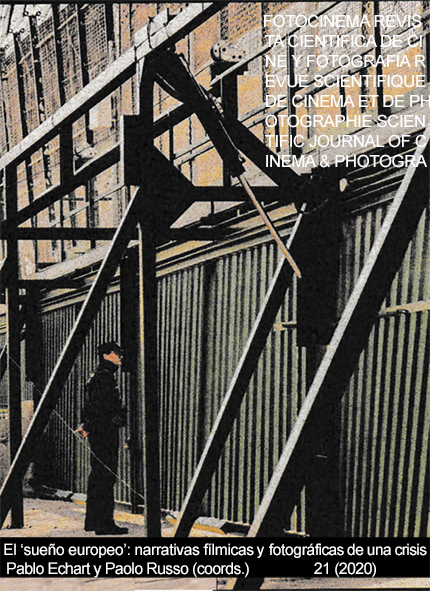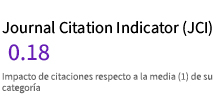El joven Winston y El instante más oscuro: Winston Churchill como líder político en una Europa cambiante
DOI:
https://doi.org/10.24310/Fotocinema.2020.vi21.9999Keywords:
Biographical dramas, Biopic, Historical Films, Churchill, Winston, Narratives of crisis, European DreamAbstract
The release of both Young Winston (R. Attenborough, 1972) and Darkest Hour (J. Wright, 2017) coincide with two critical moments in the history of Europe and United Kingdom. The former, in the wake of the 1968 protest movements; the latter, in the midst of the political and socio-economic decline of the Western world. Both films offer a positive portrayal of Winston Churchill as a political leader. In this article, we link the concrete qualities highlighted in Churchill’s character with the crisis that was escalating at the time of each release. Besides, we connect the two biopics to the relevant stages of the "European Dream": namely, its peak and its decline. The analysis concludes that in both films Churchill’s image is cut out according to the most desired leadership pattern of the related historical time period.
Downloads
Metrics
Publication Facts
Reviewer profiles N/A
Author statements
Indexed in
-
—
- Academic society
- N/A
- Publisher
- Universidad de Málaga
References
Bingham, D. (2010). Whose Lives Are They Anyway? The Biopic as Contemporary Film Genre. New Brunswick, NJ: Rutgers University Press.
Bishop. Michael F. (2018). Churchill on Screen: the Five Best. Finest Hour, 1 (179): 8-11.
Campbell, J. (1949). The hero with a thousand faces. Princeton: Bollingen Series.
Cerny, P. G. (2010). Afterword: The New Pessimism in Twenty-First Century World Politics. En T. Stevens, & N. Michelsen (eds). Pessimism in International Relations. Provocations, Possibilities, Politics. Londres: Palgrave.
Chapman, J. (2005). Past and Present: National Identity and the British Historical Film. Londres: Tauris.
Churchill, W. (1930, ed. 2012). My early life. Londres: Eland.
Ferro, Marc. (2008). El cine: una visión de la historia. Madrid: Akal.
Frago, M. & Alfonso, A. (2017). 2008–2013 Political Biopics: Adapting Leaders for a Time of Crisis. Javnost the Public 1 (24), 1-14. DOI: 10.1080/13183222.2017.1275162
Gonza?lez-Requena, J. (2006). Cla?sico, Manierista, Postcla?sico. Los modos del relato en el cine de Hollywood. Valladolid: Castilla Ediciones.
Jenkins, R. (2002). Churchill. Barcelona: Península.
Landy, M. (1991). British Genres. Cinema and Society: 1930-1960. Princeton, NJ: Princeton University Press.
Landy, M. (2001). The historical film: History and memory in media. New Brundswick, NJ: Rutgers University Press.
Marin Pedreño, H. (2018). Mayo del 68: días de Júpiter. Arbor, 194 (787), a434. https://doi.org/10.3989/arbor.2018.787n1007
Marwick, A. (2000). Introduction: Locating Key Text Amid the Distinctive Landscape of the Sixties. En A. Aldgate, J. Chapman & A. Marwick (eds.). Windows on the Sixties. Exploring Key Text of Media and Culture. Londres: I. B. Tauris, xi-xxi.
Marwick, A. (2006). Youth Culture and the Cultural Revolution of the long Sixties. En A. Schidt & D. Siegfried (eds.). Between Marx and Coca-Cola. Youth Cultures in Changing European Societies, 1960-1980. Oxford (UK): Berghagn Books, 39-58.
Morgan, I. W. (2011). Presidents in the Movies: American History and Politics on Screen. Nueva York: Palgrave McMillan.
Kenny, M. y Pearce, N. (2014). Political Leadership in an Anti-Political Age. Juncture 21 (2), 122–130. https://doi.org/10.1111/j.2050-5876.2014.00791.x
Pérez López, P. (2018). Mayo del 68: historia y legado. Cincuenta an?os de la revolucio?n final. Nuestro Tiempo 698, 104-111.
Pennacchia, M. (2016). Culturally British Bio(e)pics: From Elisabeth to The King’s Speech. En M. Minier & M. Pennacchia (eds). Adaptation, Intermediality and the British Celebrity Biopic. Nueva York: Routledge, 33-50.
Roberts, A. (2018). Churchill: Walking with destiny. Nueva York: Viking.
Rodríguez Sáez, A. (2018). El populismo: de intruso a problema relevante para la ciencia social. Revista Internacional de Sociología, 76 (4), e114. DOI: 10.3989/ris.2018.76.4.18.076
Rosenstone, R. (2006). History on Film / Film on History. Londres: Longman Pearson.
Scott, I. (2011). American Politics in Hollywood Film. Edimburgo: Edinburgh University Press.
Toplin, R. B. (1996). History by Hollywood: The Use and Abuse of the American Past. Urbana: University of Illinois Press.
Toplin, R. B. (2002). Reel History: In Defense of Hollywood. Lawrence: University Press of Kansas.
Vidal, B. (2014). The Biopic and Its Critical Contexts. En T. Brown & B. Vidal. The Biopic in Contemporary Film Culture. London: Routledge, 1-32.
Wright, J. (2017). Darkest Hour. USA y UK: Working Title Films / PWPIC.
Zurro, J. (2018). "El cine se rinde a Winston Churchill”, El Español, 11 de enero de 2018. https://www.elespanol.com/cultura/cine/20180111/no-quedan-lideres-cine-rinde-winston-churchill/276473054_0.html
Downloads
Published
How to Cite
Issue
Section
License
All contents published in Fotocinema Revista científica de cine y fotografía are protected under the Creative Commons Attribution-NonCommercial-ShareAlike 4.0 International (CC BY-NC-SA 4.0) license. All about this license is available in the following link: <http://creativecommons.org/licenses/by-nc-sa/4.0>
Users can copy, use, redistribute, share and exhibit publicly as long as:
- The original source and authorship of the material are cited (Journal, Publisher and URL of the work).
- It is not used for comercial purposes.
- The existence of the license and its especifications are mentioned.
There are two sets of authors’ rights: moral and property rights. Moral rights are perpetual prerogatives, unrenounceable, not-transferable, unalienable, imprescriptible and inembargable. According to authors’ rights legislation, Fotocinema. Revista científica de cine y fotografía recognizes and respects authors moral rights, as well as the ownership of property rights, which will be transferred to University of Malaga in open access. The property rights are referred to the benefits that are gained by the use or the dissemination of works. Fotocinema. Revista científica de cine y fotografía is published in an open access form and it is exclusively licenced by any means for doing or authorising distribution, dissemination, reproduction, , adaptation, translation or arrangement of works.
Authors are responsable for obtaining the necessary permission to use copyrighted images.














13.png)



